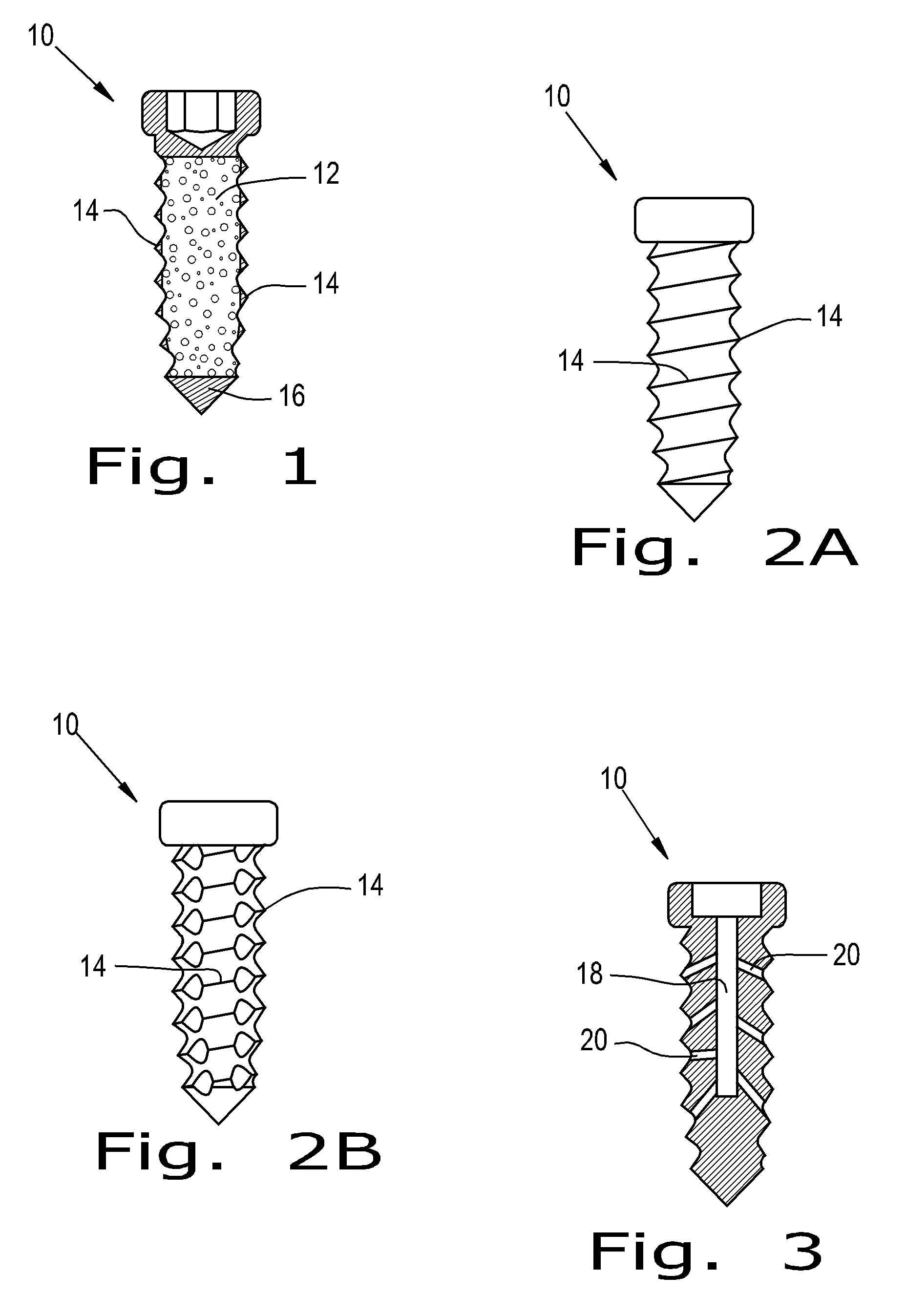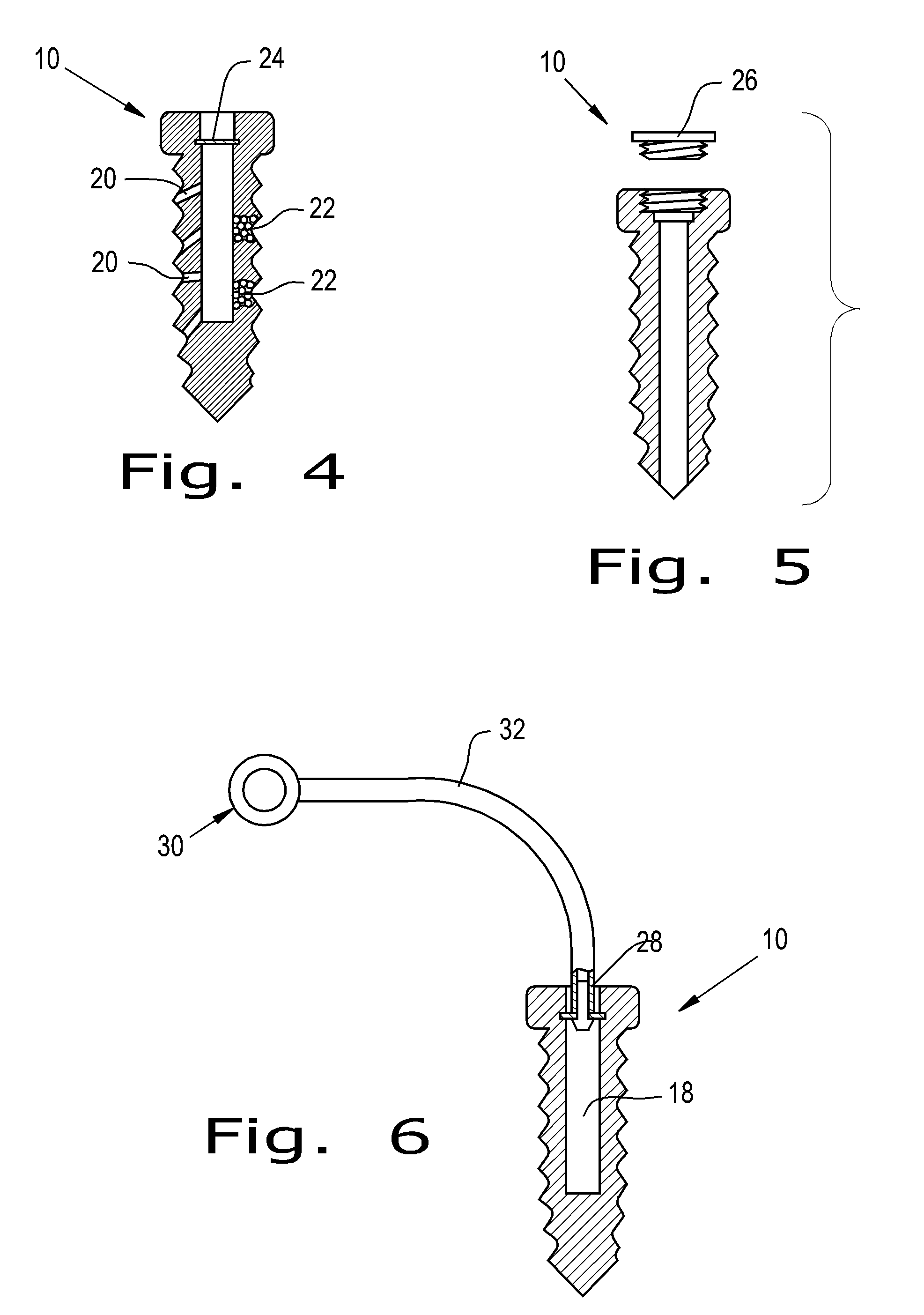Orthopaedic screws
a technology of orthopaedic screws and screws, which is applied in the field of orthopaedic screws, can solve the problems of significant whiteout in the screw region, difficult to examine bone or soft tissue near the screw via x-ray, ct, or mri scan, and known metal and resorbable screws, so as to improve the attachment strength of bone to the screw, promote tissue integration, and improve the effect of bone-to-screw strength
- Summary
- Abstract
- Description
- Claims
- Application Information
AI Technical Summary
Benefits of technology
Problems solved by technology
Method used
Image
Examples
Embodiment Construction
[0031]The present invention provides a device which can have a porous nature and which has the ability to deliver therapeutic agents. The porous nature of the device of the present invention and the ability of the device of the present invention to deliver therapeutic agents therethrough addresses existing deficiencies in the known art by promoting successful tissue integration.
[0032]The present invention provides a screw that is porous and / or can deliver therapeutic agents to the surrounding tissue. The materials to create this screw can be any implantable polymer, metal or ceramic or combinations of these. Possible polymers include PEEK (Poly(etheretherketone)), PEK (Poly(etherketone)), PAEK (poly(aryletherketone)), polyethylene, and resorbable polymers such as PLA (Poly(lactic acid)) and PGA (poly(glycolic acid)). Likely first candidates are PEEK, reinforced PEEK (reinforcing materials include but are not limited to carbon fiber / particles / nanotubes, barium sulfate, zirconia) and ...
PUM
 Login to View More
Login to View More Abstract
Description
Claims
Application Information
 Login to View More
Login to View More - Generate Ideas
- Intellectual Property
- Life Sciences
- Materials
- Tech Scout
- Unparalleled Data Quality
- Higher Quality Content
- 60% Fewer Hallucinations
Browse by: Latest US Patents, China's latest patents, Technical Efficacy Thesaurus, Application Domain, Technology Topic, Popular Technical Reports.
© 2025 PatSnap. All rights reserved.Legal|Privacy policy|Modern Slavery Act Transparency Statement|Sitemap|About US| Contact US: help@patsnap.com



